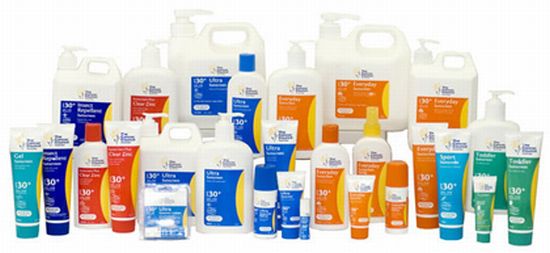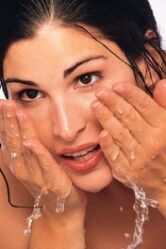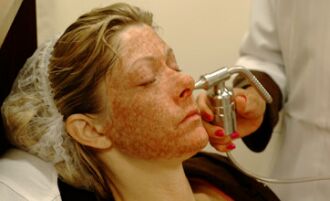Planning to buy a new sunscreen that youâve seen in the market? Better think twice before you do that. According to a study conducted by the Environmental Working Group, a non profit research organization based in Washington D.C., 4 out of 5 sunscreen lotions do not give adequate protection against the harmful rays of the sun or contain harmful chemicals.
Most of these sunscreens seem to be effective for sunburns, but their efficiency in fighting skin cancer is under question. They seem to be having little effect on the prevalence of melanoma which is the deadliest form of skin cancer. The rate of contracting skin cancer remains steady. According to the National Cancer Institute this trend is actually on a rise. According to Dr. Marianne Berwick, a melanoma specialist, who heads the Division of Epidemiology (University of New Mexico), there is no evidence that sunscreens work against melanoma.
However, the industry experts are ready with their own versions on the effectiveness and safety of sunscreens.
According to John Baily , chief scientist at the Personal Care Products Council (a trade association for the cosmetic and personal care product industry) the materials used in sunscreens are tested in a number of ways in animal studies and clinical studies before being approved for usage by the public. According to him, the EWG is taking the laboratory studies into considerations and not the ones conducted on human beings and drawing conclusions that the products are unsafe and hence to be avoided. However, when asked about the effectiveness of the sunscreens on skin cancer he agreed that scientifically it cannot be said that sunscreens protect against melanoma.
A number of scientists believe that people who apply sunscreens remain in the sun for longer periods of time thinking that the sunscreen is actually protecting them against the sun. It has been observed that FDA (Food and Drug Administration), when checking a new brand of sunscreen, asks for the verification of its effectiveness against sunburn but not against melanoma and other forms of skin cancer.
But are the sunscreen manufacturers actually at fault? Before contemplating on that we should examine how the sunscreens have been working till now. It has been found that sunscreens are effective against sunburn but not skin cancer. How? The sun emits two types of rays that are harmful to the human skin. They are UVB (ultra violet B rays) and UVA (ultra violet A rays) both of which cause sunburn. Repeated sunburn may lead to skin cancer. The sunscreens that have been developed till now protect against sunburn caused by UVB and not UVA. Now UVA is being looked upon as a causal factor for melanoma. The SPF (Sun Protection Factor) might be effective in protecting against sunburn caused by UVB and not UVA.
Now, FDA that regulates sunscreens as over-the âcounter drugs is rolling out a labeling system in which the manufacturer of the sunscreen has to specify its effectiveness against UVA by May. Also the acronym SPF will be changed to mean Sunburn Protection Factor rather than Sun Protection Factor.
According to Margaret Tucker, Director of Human Genetics Program and Chief of the Genetic Epidemiology Branch (National Cancer Institute), the newer generations of sunscreens might prove to be more effective against skin cancer. She was critical of the view that there is an increased risk of skin cancer in people who stay out in the sun for longer durations after applying a sunscreen. She opines that people do not apply adequate quantities of the sunscreen while exposing themselves to the sun. They do not reapply it during the day. According to her if you sweat, you need to apply it once every twenty minutes or at least after every couple of hours.
via: SFGate





